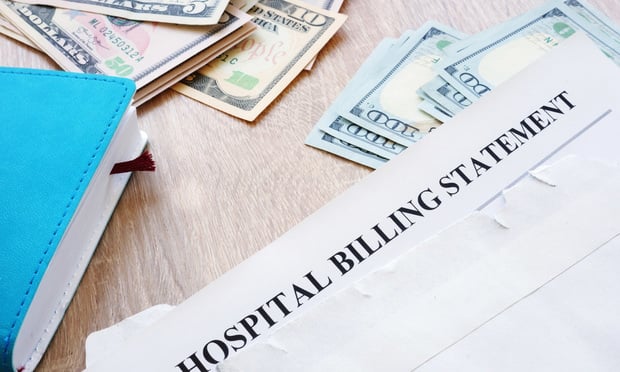 Four in 10 insured individuals report receiving an unexpected medical bill because their insurance provider didn't cover as much as they anticipated.
Four in 10 insured individuals report receiving an unexpected medical bill because their insurance provider didn't cover as much as they anticipated.
Turns out that most people worry about medical bills — not just the uninsured. The MITRE-Harris Poll Survey on Health Insurance Literacy and Perception, released Dec. 9, reveals that 75% of individuals with health insurance in the United States have some level of concern about financial hardship caused by medical bills. That almost matches the 77% of uninsured Americans who have the same fear.
One reason for that wariness is that four in 10 insured individuals report receiving an unexpected medical bill because their insurance provider didn't cover as much as they anticipated (47%), they didn't realize a procedure wasn't covered by insurance (42%), or a doctor or medical facility was out of their network (33%). Researchers say individuals with employer-based health insurance plans reported more billing surprises than Medicare beneficiaries.
Recommended For You
"These survey results highlight the challenges that people across the nation face in selecting and using their health insurance," Juliette Espinosa, senior Medicare, Medicaid, and ACA Marketplace strategist for MITRE, said in a statement. "Even those fortunate to have insurance struggle with bills that result from misunderstanding or underestimating deductibles, scope of covered benefits, and level of financial exposure for out-of-pocket costs of treatments and procedures."
The survey's results are based on responses received online from more than 2,000 adults in June 2021.
The survey also found that most people (53%) say they understand their health insurance plan only "somewhat," while 33% feel they understand their plan "completely." Only 34% of people surveyed are aware that hospitals are required to list their prices publicly; knowing that now, 68% say they are likely to look up prices.
Additional key findings:
- 28% of respondents admit they never check their coverage before using their health insurance.
- Nearly three-quarters of those surveyed say they "somewhat" or "completely" understand which mental health services are covered by their plan, while 26% admitted they do not understand those services "very well" or "at all."
- Women, who are more likely to make household healthcare decisions, report feeing far more stressed, confused, and anxious than men when choosing a health insurance plan.
- Nearly half of all respondents say insurance companies are primarily responsible for making health insurance plans easier to understand. Younger people, however, feel there is a shared responsibility among insurance companies, healthcare providers, and the government.
"This research demonstrates that there is a consumer education gap to fill when it comes to health insurance," Rob Jekielek, managing director for The Harris Poll, said in a statement.
"There are a variety of health care player implications to this as older generations [Gen X and Boomers] are twice as likely, versus younger generations [Gen Z and Millennials], to say that the primary responsibility of making insurance plans easier to understand is with insurance companies. In contrast, younger generations are twice as likely, versus older generations, to say that the primary responsibility is with the government."
"Consumers need clearer guidance from insurance providers and more price transparency from hospitals and medical offices," Espinosa concluded. "New federal policies are geared toward achieving these goals, but there is much work to be done to inform and support consumers."
© 2025 ALM Global, LLC, All Rights Reserved. Request academic re-use from www.copyright.com. All other uses, submit a request to [email protected]. For more information visit Asset & Logo Licensing.







